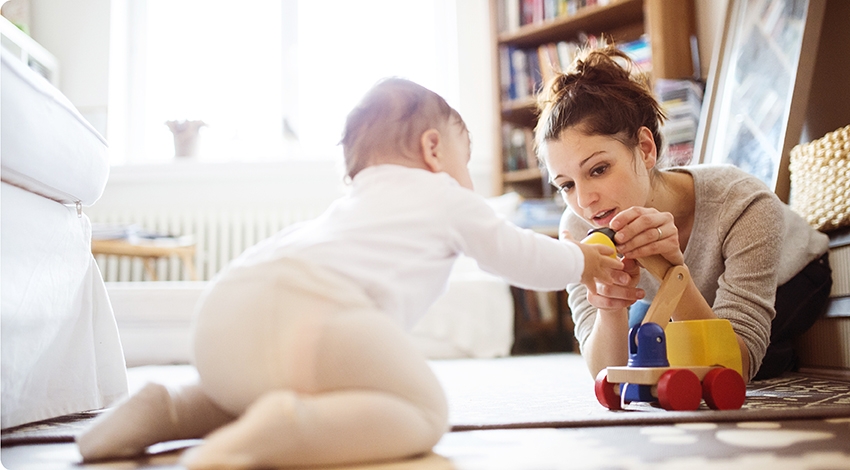"Respect for the Child"
Respect for the child
“Children live in a world of their own interests, and the work they do there must be respected, for although many activities of children may seem pointless to grown-ups, nature is using them for her own ends. She is building mind and character as well as bone and muscle. The greatest help you can give your children is the freedom to go about their own work in their own way, for in this matter your child knows better than you.”
Dr. Maria Montessori (Maria Montessori Speaks to Parents, p. 28, Montessori-Pierson Publishing Company)

In a Montessori Environment, this ideal takes many forms. Read on for a few key examples.
- 1. Respect for the child's developing language. This means we listen to young children who may be “just babbling.” This is their way of communicating with us – a very human desire. The more we listen and respond, the more we understand and the more they are encouraged to strengthen those muscles needed for speaking. It also means that we do not interrupt them in their efforts to express themselves, nor do we speak for them.
- 2. Respect for the child's effort. Being a young child is all about practising. It is important to respect the time it takes to master a skill and the many repetitions needed before mastery occurs. This means that we do not interrupt when a child is focused on a task, no matter how mundane it may seem to us. We do not 'take over' or 'step in' unless the child asks for help. Then we give only a little bit of help and step back to allow the child to continue his effort.
- 3. Respect for the child's body. This means that, before the child is crawling or walking, we do not pick them up without first telling them they are about to be picked up. This gives them a moment to consent and it tells them that their body is their own. Once they are able to walk, we let them walk as much as possible because we know that they are developing the muscles and coordination necessary for balance on two feet. This idea extends to helping the child develop body awareness in toileting, giving them the proper names for all their body parts, always asking before we give them a hug, and respecting their answer.
- 4. Respect for the child's inner thoughts. We know that children understand far more than they can communicate. So, we show respect by not discussing them as though they are not present. We also respect their developing brains by offering high quality information and real-world experiences which will nourish them and feed their curiosity. Children have rich inner lives and they love to share their ideas. By providing them with space and time to think and daydream, we are showing that we respect their inner lives. If we're lucky, they will share their thoughts with us.
Blog Posts
- 2022
- January 20, 2022
"Montessori Trench Talk" - 2021
- April 22, 2021
"Is Montessori for Everyone?" - 2019
- March 28, 2019
"The Reasoning Mind of the Six to Twelve-year old" - 2018
- August 9, 2018
"Fostering Independence" - September 1, 2018
"Respect for the Child" - December 20, 2018
"Nurturing the Absorbent Mind"



